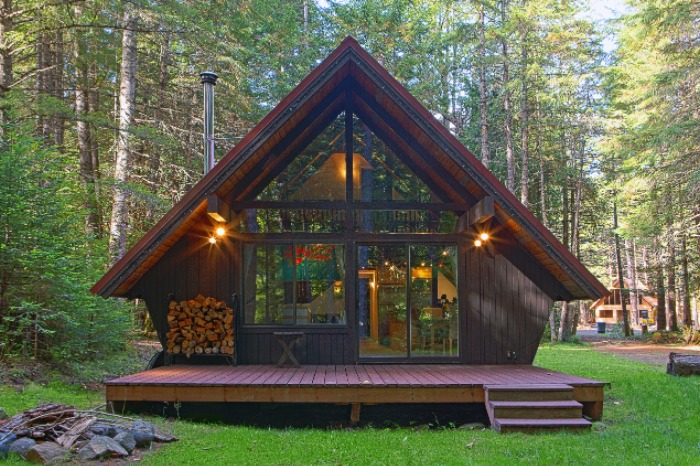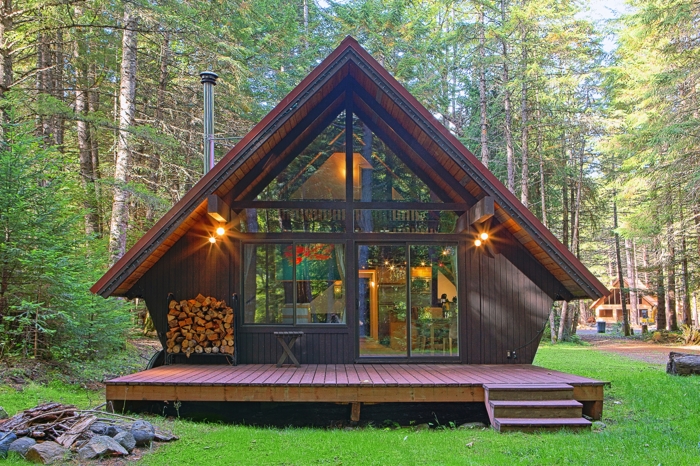The rental market is evolving, and mid term rentals are carving out a lucrative niche for savvy property owners. A mid term lease agreement is the cornerstone of this strategy, offering flexibility for tenants and consistent income for landlords.
Whether you’re a seasoned investor or just stepping into the world of mid term rentals, understanding the intricacies of a mid term rental lease can transform your rental property into a cash-flowing asset. With the right approach—backed by the proven strategies of 10XBNB—you can dominate the mid term housing market.
Let’s break down what makes a mid term lease agreement your ticket to success in the latest of Airbnb Tips.

What Is a Mid Term Lease?
A mid term lease agreement is a rental contract typically spanning three to nine months, bridging the gap between short term rentals and long term leases.
Unlike short term vacation rentals, which cater to tourists for days or weeks, or year long leases that demand a long term commitment, mid term rentals provide temporary housing for tenants like business professionals, relocating families, or students in college towns.
This lease duration offers flexibility for mid term tenants while ensuring property owners enjoy stable income without the churn of managing short term rentals.
Mid term rentals are ideal for those seeking mid term housing solutions, such as corporate housing or accommodations during major renovations.
The term rental lease agreement outlines the rental period, monthly rent, security deposit, and house rules, ensuring clarity for all parties involved.
By leveraging a well-crafted mid term rental agreement, landlords can attract high-quality prospective tenants and maintain a smooth rental experience.
Why Mid Term Rentals Are a Game-Changer
Mid term rentals provide a unique opportunity for property owners to capitalize on a growing segment of the rental market.
Unlike short term rentals, which require constant guest turnover and intensive property management, mid term leases offer longer rental periods, reducing vacancy rates and operational headaches.
Compared to long term rentals, mid term stays allow landlords to adjust pricing more frequently to match market demand, maximizing profitability.
For example, in college towns, mid term rentals cater to students or visiting professors needing housing for a semester.
In urban areas, mid term corporate housing attracts business travelers requiring accommodations for extended projects.
The flexibility of medium term rentals makes them a versatile option for property owners looking to diversify their portfolio. With 10XBNB’s mentorship program, you can learn how to market yourself as an Airbnb Co-Host and optimize your mid term rental property for success.
Key Components of a Mid Term Lease Agreement
A robust mid term rental lease is the foundation of a profitable rental strategy. Here are the essential elements every lease agreement should include:
- Lease Duration: Clearly define the rental period, typically three to nine months, to set expectations for both parties.
- Monthly Rent and Payment Terms: Specify the monthly rent, acceptable payment methods, and payment schedule to avoid disputes.
- Security Deposit: Outline the security deposit amount and conditions for its return, protecting your rental property from potential damage.
- House Rules: Include rules on noise, guests, and property use to ensure a smooth rental experience. For guidance on setting effective rules, check out 10XBNB’s insights on HOA regulations and house rules.
- Early Termination Clauses: Address conditions for early termination, including notice periods, to protect both landlord and tenant.
- Maintenance Responsibilities: Clarify who handles repairs and upkeep, ensuring the property remains in top condition.
By including these components, your mid term lease agreement will minimize risks and foster strong tenant relationships. For expert advice on crafting airtight contracts, 10XBNB’s property management course offers actionable strategies to streamline your operations.
Can Someone Move In with You Mid Lease?
A common question among mid term renters is whether additional occupants can move in during the rental period. The answer depends on the terms outlined in the mid term rental agreement.
Most lease agreements specify the number of occupants allowed and require landlord approval for any changes.
Allowing unauthorized occupants can violate local regulations or HOA rules, potentially leading to legal issues.
To address this, include a clause in your term rental lease agreement requiring written consent for additional occupants.
This protects your property and ensures compliance with local landlord tenant laws. If you’re unsure about navigating these regulations, 10XBNB’s network of Airbnb lawyers can provide expert guidance to keep your mid term rental property compliant.
Red Flags in a Mid Term Lease Agreement
Not all lease agreements are created equal. Prospective landlords and tenants must scrutinize the terms to avoid pitfalls. Here are key red flags to watch for in a mid term rental lease:
- Vague Terms: Ambiguous language around rental terms, security deposits, or early termination can lead to disputes.
- Excessive Restrictions: Overly strict house rules may deter quality tenants or create friction during the rental period.
- Missing Clauses: Lack of clarity on maintenance, notice periods, or payment terms can result in costly misunderstandings.
- Non-Compliance with Local Laws: A lease agreement that ignores local landlord tenant laws risks being unenforceable.
To avoid these issues, work with a professional or leverage 10XBNB’s resources to ensure your mid term lease agreement is ironclad. A well-structured lease protects your investment and sets the stage for a profitable mid term rental strategy.
Mid Term vs. Short Term Rentals: What’s the Difference?

Understanding the distinction between mid term rentals and short term rentals is critical for property owners. Here’s a breakdown:
- Lease Duration: Mid term rentals typically last three to nine months, while short term rentals span days to a month.
- Target Audience: Mid term rentals attract business professionals, students, or those needing temporary housing, whereas short term rentals cater to vacationers.
- Management Intensity: Short term rentals require frequent cleaning, guest communication, and marketing, while mid term leases involve less turnover. Learn more about managing short term rentals with 10XBNB’s cleaning business tips.
- Pricing Flexibility: Mid term rentals allow periodic price adjustments, but short term rentals can command premium rates during peak seasons.
For a deeper comparison, check out 10XBNB’s analysis of renting vs. Airbnb hosting. By focusing on mid term rentals, you can achieve a balance of stability and profitability without the demands of short term vacation rentals.
Pros and Cons of Mid Term Rentals
Pros
- Stable Income: Longer lease terms reduce vacancies compared to short term rentals.
- Lower Turnover Costs: Fewer tenant changes mean reduced cleaning fees and marketing expenses.
- Flexible Pricing: Adjust rates to reflect market trends without committing to annual leases.
- Diverse Tenant Pool: Attract mid term renters like corporate clients or students for consistent demand.
Cons
- Limited Peak-Season Gains: Unlike vacation rentals, mid term rentals may miss out on high-season premiums.
- Regulatory Risks: Local laws may impose restrictions on mid term leases, requiring careful compliance.
- Tenant Screening: Finding reliable mid term tenants requires thorough vetting to avoid issues.
With the right strategy, the pros of mid term rentals far outweigh the cons. Maximize returns equips you with the tools to mitigate risks and maximize returns. 10XBNB’s mentorship program equips you with the tools to mitigate risks and maximize returns.
Pro Tips for Mid Term Rental Success
- Market on Platforms Like Facebook Marketplace: Reach mid term renters directly on platforms where they search for mid term housing.
- Install Security Systems: Protect your property with cameras, as outlined in 10XBNB’s guide to the best security cameras for Airbnb.
- Offer Furnished Units: Fully furnished mid term rentals appeal to business travelers and relocating tenants.
- Anticipate Slow Seasons: Plan for quieter months with strategies from 10XBNB’s slow Airbnb months guide.
- Use a Damage Waiver: Protect your investment with a damage waiver, as detailed in 10XBNB’s rental equipment guide.
How to Structure Your Mid Term Lease Agreement
A well-structured mid term rental agreement is your first line of defense against disputes. Start with a clear outline of the lease terms, including the rental period, monthly rent, and security deposit.
Specify acceptable payment methods and the payment schedule to ensure timely rent collection. Include clauses on early termination and notice periods to cover unexpected tenant departures.
Next, address maintenance responsibilities and house rules to maintain your property’s condition. For example, clarify expectations around cleaning fees or property upkeep. Finally, ensure legal compliance by aligning your term rental lease agreement with local regulations.
If a tenant leaves a negative review due to a misunderstanding, 10XBNB’s review removal service can help protect your reputation.
Targeting the Right Tenants for Mid Term Rentals
Finding the right mid term tenants is crucial for a successful rental strategy. Focus on markets with high demand for mid term housing, such as corporate hubs or college towns. Business professionals seeking mid term corporate housing or students needing semester-long accommodations are ideal candidates.
Use platforms like Facebook Marketplace to connect with prospective tenants and highlight your property’s unique features, such as proximity to business districts or universities.
Screening is key to securing reliable tenants. Verify income, check references, and conduct background checks to minimize risks. A strong tenant relationship starts with a clear mid term lease agreement and open communication, setting the stage for a smooth rental experience.
Local landlord tenant laws vary widely, and mid term rentals may face specific restrictions. Some municipalities require permits for rentals under a year, while HOAs may impose additional rules.
Research local regulations thoroughly to ensure your mid term rental property complies. For complex legal matters, consult 10XBNB’s recommended Airbnb lawyers to safeguard your investment.
Why Mid Term Rentals Outshine Traditional Leases

Unlike traditional leases, which lock landlords into year long leases, mid term rentals offer flexibility to adapt to market changes. You can adjust pricing, update amenities, or pivot to short term rentals during peak seasons.
This agility makes medium term rentals a powerful tool for property owners seeking to 10X their returns. With 10XBNB’s property management course, you’ll master the art of balancing flexibility and stability.
Scaling Your Mid Term Rental Empire
Once you’ve mastered a single mid term rental property, it’s time to scale. Reinvest profits into additional properties in high-demand areas, leveraging 10XBNB’s real estate agent network to find prime locations.
Systemize your operations with professional property management to handle tenant screening, maintenance, and compliance. By following 10XBNB’s proven playbook, you can build a portfolio that generates passive income and long-term wealth.
Take Control of Your Mid Term Rental Journey
Mid term rentals are your opportunity to dominate the rental market with less hassle than short term rentals and more flexibility than long term leases.
A well-crafted mid term lease agreement is the key to unlocking this potential, protecting your investment, and attracting high-quality tenants. Don’t leave money on the table—join the thousands of property owners who have transformed their rentals with 10XBNB’s mentorship program. Sign up today and start building your mid term rental empire with confidence.












